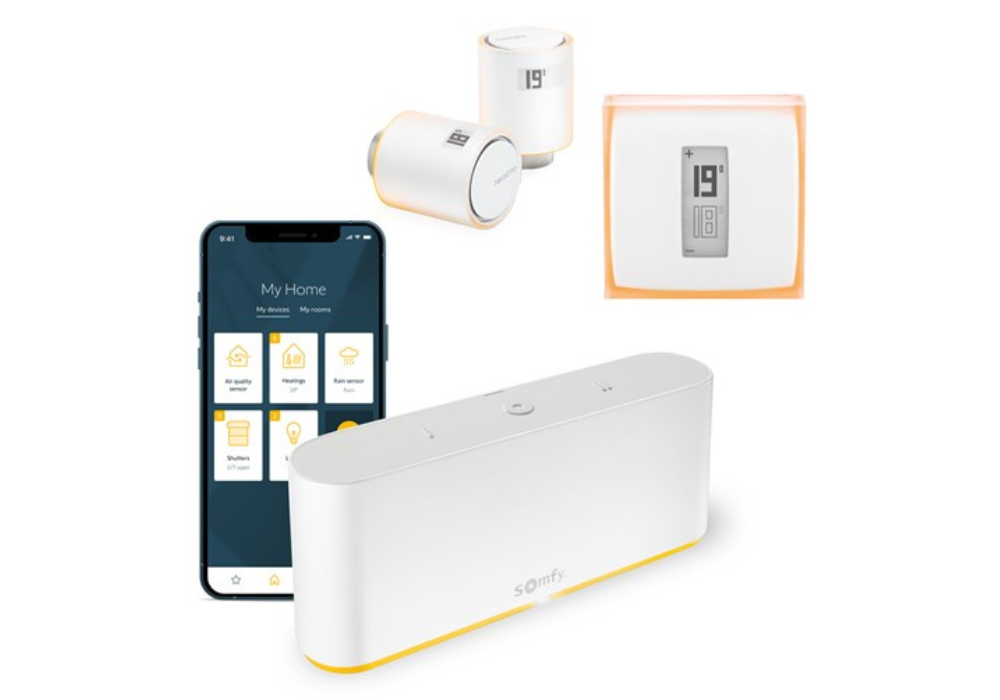
Netatmo utökar samarbete med Somfy

Door alarms are a very subtle home security product. Usually, door alarms are small, wireless boxes you can attach close to the doors in your home using magnetic strips.
You might want to position just one main door alarm close to the front door of your home. Or, you might want to attach door alarms to all the doors in your home (garage doors, side and back doors, glass garden doors, cellar doors, safe doors, and so on).
If someone tries to open any of the alarmed doors in your home, the sensitive motion detectors on the alarms will trigger a security alarm.
Window alarms work in a similar way, using sensors to alert you if someone tries to open a window in your home. Window alarms can be very useful on ground floor windows around your home, as these are more vulnerable to break-ins.
In terms of home security systems, door and window alarms are an efficient home security product that don’t come at too high a price.
Plus, wireless door and window alarms might well have a reduced installation price. As wireless security systems are much simpler to install in your home, you might even be able to set them up yourself.
Wireless door and window alarms are a very flexible home security product.
Depending on your preferences, you can easily move the door and window sensors to different points in your home, especially if the sensors are only attached with magnetic strips.
If your door and window alarms are in good view around your home, they’ll likely act as an effective deterrent for potential intruders. But, make sure your smart home security products are securely installed, so they can’t easily be removed or damaged by potential thieves.
As we’ve seen, these subtle door and window alarms contain motion sensors. These motion detectors trigger security alarms, putting of intruders from trying to enter the home.
Smart door and window alarms are very sensitive: their motion detection technology can alert you to even small vibrations, as they indicate that someone is trying to break into your home.
In these cases, your home security alarm would be triggered before the intruder even gets your home’s door or window open.
Smart, wireless door and window alarms can be connected to the WiFi in your home. These security sensors can reliably alert you to any unusual activity in and around your home.
Download the corresponding app to your smart devices, and you’ll be able to remotely control your home security system from wherever you are, whenever you want.
If your door alarms are triggered, the app will alert you to that fact via an instant notification.
You can choose to remotely trigger your door or window alarms, or choose to turn off the alarms if there’s no need for them to be on.
Plus, if you’ve fitted a smart security sensor, you can check the open or closed status of the doors and windows around your property.
Whether you integrate your door and window alarms into a full home security system or not, they’re a great asset.
Research the best options for your home before installing your window and door alarms.
Let’s take another look at the main points you’ll want to consider:
If you’re installing door and window alarms, make sure the people living in your home all know how they work – and how to turn off the alarms!
It’s important to make sure your door and window alarms don’t go off unnecessarily, as they might turn into a public nuisance.
Smart door and window sensors are advanced enough to accurately alert you to suspicious activity in and around your home.
However, you’ll need to make sure your smart sensors are installed properly. If you’re considering a DIY installation of your smart home security system, make sure the sensors’ detection levels are correctly set up.
If you’re considering installing smart door and window alarms in your home, why not add them into a comprehensive smart home security system? The Netatmo Smart Door and Window Opening Sensors connect to our Smart Indoor and Outdoor Cameras and Smart Indoor Alarms. Use your home’s WiFi network to create an integrated smart home security system that you can control remotely.